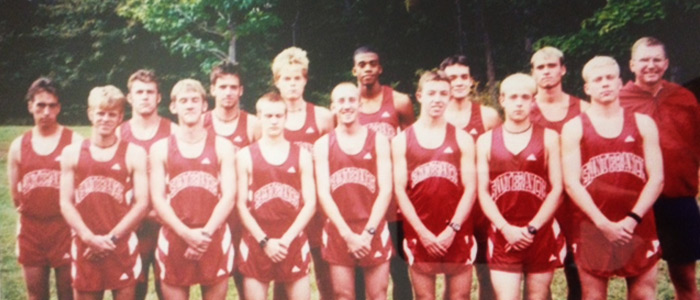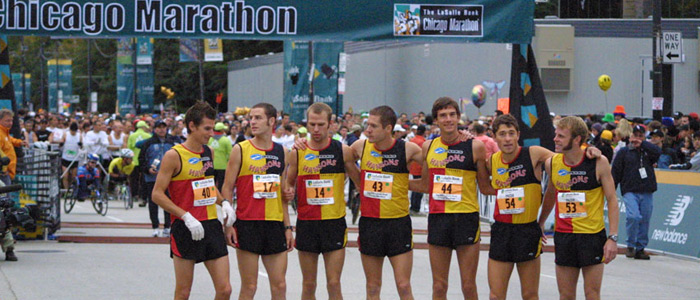I remember like it was yesterday (even though it’s been over 20 years now), when my high school track coach told me to start keeping track of what I ran and how I felt on a daily basis. I recall not being thrilled about it since it meant more work. At sixteen, the only work I wanted involved washing my sweet 1989 Chevy Corsica that my dad and I had just bought at his company auction, or work which I would be paid for, so I could take my girlfriend out on a date to somewhere fancy like Ponderosa. I reluctantly found a blank notebook in a drawer at home and began recording runs starting March 7, 1994. What seemed like a task at first quickly became one of the highlights of my week, and to this day, I still go back to my old logs and reminisce about memories that occurred on runs throughout high school, college, and my professional running career. There was the time my high school teammate and I decided it would be a good idea to run up the tallest mountain in our area. Although the run was probably only 1-2 miles long, I can still recall the magnificent view at the top and how my young knees were able to handle the all-out sprint back down. Another great memory occurred when our 800-meter runner, who shall remain nameless, stopped to take a leak on a run through the woods in Cambria County. A few minutes later, he came sprinting by us naked, carrying a deer leg he found in the woods like a caveman. There are many fast workouts I still can’t believe I was able to hit (2×6 mile in 29:12 and 28:44 with a 10 minute jog between) while I was a professional in Michigan. My point is, a running log can be very useful for stirring up great memories, as well as providing your coaches and yourself benchmarks for future training.
I have been doing some coaching with my partner Ryan Bair of FLASH Sports Physical Therapy & Performance Center in West Chester, PA, and the online running log Final Surge has revolutionized the way we are able to track and provide feedback to our athletes on a daily (even hourly) basis. Athletes can tell us almost instantly how they feel and give us almost real-time data regarding their daily runs. We, in turn, can tailor the athlete’s training to how they feel, weather conditions, and travel and work schedules in an instant. Athletes can log their shoes to ensure they are not running on a pair that is overdue for replacement, putting them at risk for injury. As a sports physical therapist, Ryan instantly can address injuries that creep up, and I can quickly provide tips and tricks that I have learned along the way. A running log, whether it be an old notebook or electronic, is truly a worthwhile tool for all runners.





